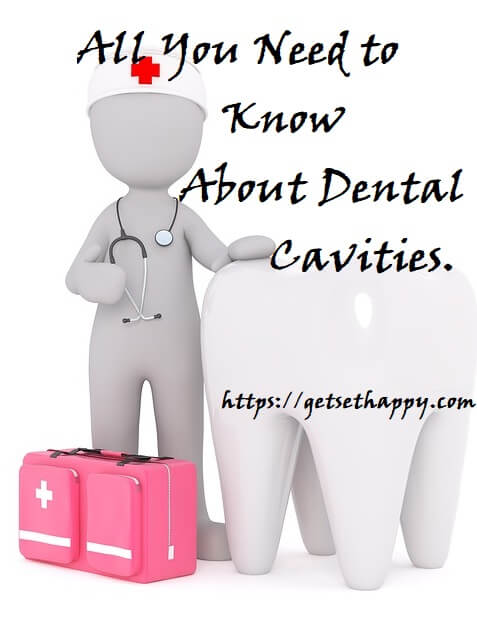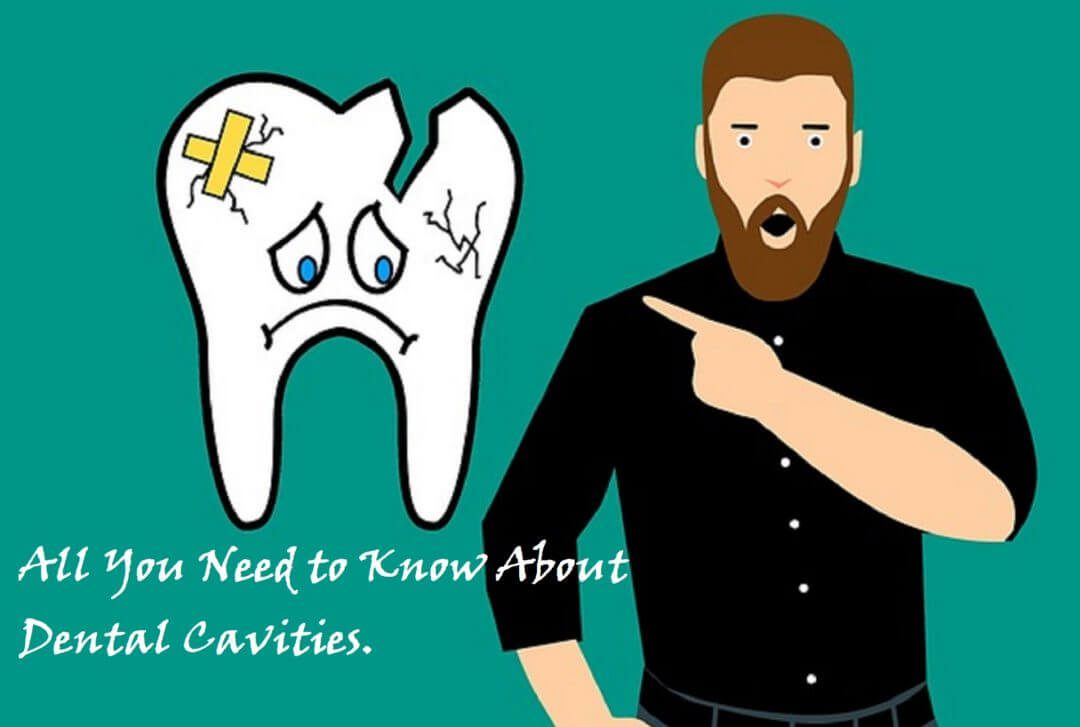Cavities and tooth decay are among the most common health problems in the world. They are not dangerous, yet lack of treatment can make them harm your oral health irreparably. Anyone with teeth can develop cavities and age is often no bar as far this common dental issue is concerned. A cavity, or tooth decay, is basically a hole that forms in the tooth due to poor oral hygiene, or plaque or bacteria.
If left untreated, the small hole will grow bigger, eat away the tooth and lead to decay. The good thing, cavity is entirely preventable with regular dental visits and then you can get the treatment. Plus, there is always tooth cavity filling for help when your problem is detected at an early stage itself. That’s why consulting the dentist regularly is key to staying on top of your dental health.
Here are some of things you need to know about cavities –
Symptoms of cavities
- The symptoms mostly depend on the severity of the decay so it will differ from person to person in most cases
- Tooth sensitivity is among the early signs of tooth decay
- Tooth pain, mostly of mild nature and with tingling sensation, can also happen
- There will be a visible hole in the teeth, which is not visible from naked eyes when it early stage
- In some cases, there will be black or white staining on the teeth as well
Causes of cavities
- Plaque is the major reason behind cavities
- Plaque is a sticky substance that builds up and binds to the teeth when oral care is poor
- The plaque which causes cavities often combines bacteria, saliva, food debris and acid
- The acid in plaque can slowly erode the tooth enamel therefore increasing the risk of decay and cavities
- Eating or drinking sugary items means allowing plaque formation on the tooth
- The bacteria in our mouth will turn sugar into acid and lead to cavities
- Poor oral hygiene where not brushing can allow plaque to damage the enamel and lead to decay
Risk factors for cavities
- People who eat or consume too much sugary or acidic foods and drinks are at risk for cavities
- People who have a poor oral hygiene, or those who don’t brush, or floss daily are at risk for decay
- People who are not getting enough fluoride are also at risk for cavities
- Dry mouth is also one of risk factors for cavities
- People who have acid reflux disease here the stomach acid wears down the enamel, are also at risk
Treatment options for cavities
- Treatment options for cavities often depend on the severity of the problem so it will vary from patient to patient
- Before starting the treatment, the dentist will first identify the decay after an oral exam and may do an x-ray as well for the same
- Tooth fillings are always the most popular treatment option when cavities are at initial stage
- In tooth fillings, the dentist will drill and remove the decayed portion from the teeth and fill a substance such as resin, silver or gold
- If the decay is more severe in nature, the dentist may put a custom-made cap over the tooth to replace it with natural crown
- The use of cap treatment is done only after the dentist has removed the decay tooth material
- A root canal treatment becomes necessary in cases where the decay has affected the nerves or where the cavities have left the nerves dead
- During a root canal, the dentist will remove the decayed areas of the teeth and then will fill the tooth or may even use a crown as well
- A fluoride treatment option is also available when a patient has cavities of early stage
Prevention of tooth cavities
- Tooth cavities are entirely preventable and some care from you can also help reduce its risks drastically
- You can prevent it by brushing the teeth at least twice a day using a fluoride-containing toothpaste
- Flossing once a day can help prevent the risk of cavities
- Less consumption of sugary items like sweets, candies, chocolates can prevent the tooth decay
- Consuming acidic foods like soda, cola, juice in moderation can prevent cavities
- Less snacking between meals can also work well to prevent cavities
- If you want to prevent cavities, you should consider getting dental sealants on the tee
- Eating a balanced diet can help prevent cavities
- Some of foods that can prevent tooth decay include fibre-rich fruits, vegetables, calcium-rich items etc
- Drinking plenty of water through the day can also prevent the occurrence of cavities
- Keeping the mouth hydrated by sugarless chewing gum can also help in prevention of cavities
- Consumption of unsweetened black or green tea and drinking water with fluoride will also help
- A regular visit to the best dental clinic for oral check can also prevent tooth decay.






3 Comments
Sunitha
March 17, 2022 at 3:33 pmHi,
Very great explanation about dental cavities. Keep posting like this
Ram Sharma
March 2, 2023 at 12:06 pmThanks for the information..